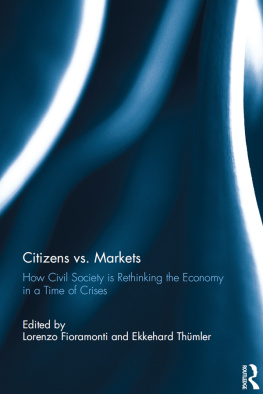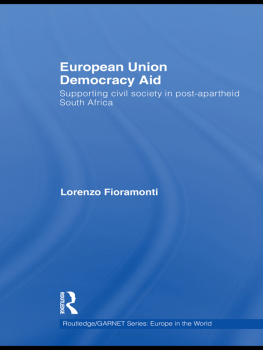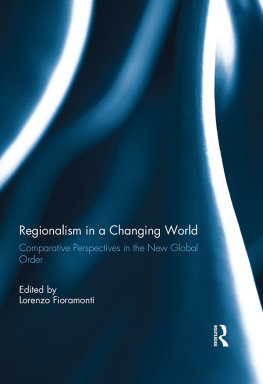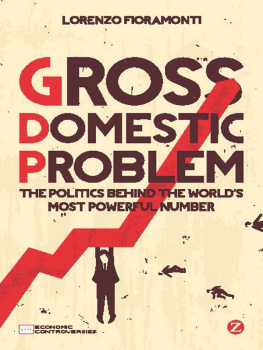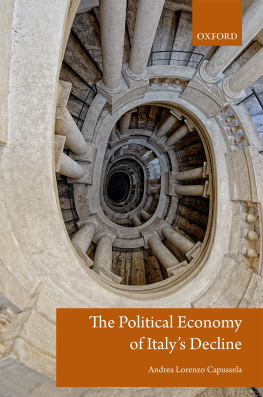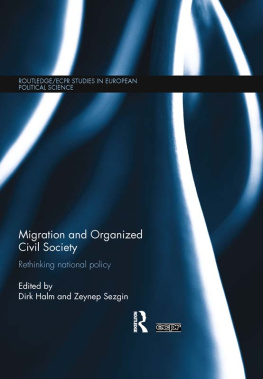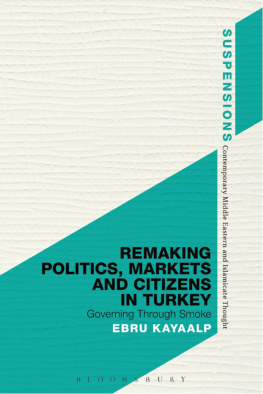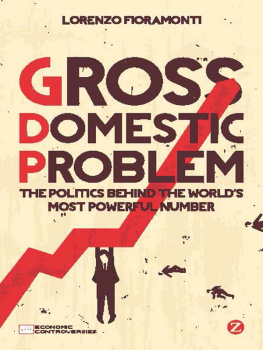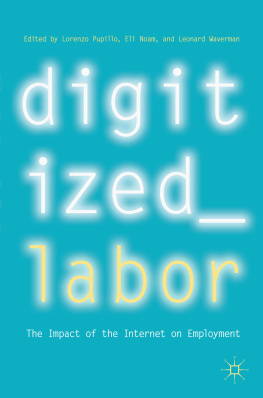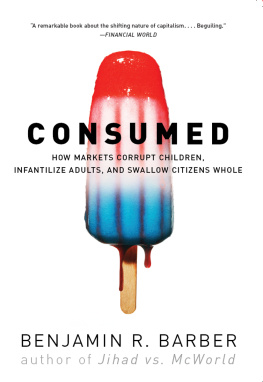Citizens vs. Markets
After an apparent temporary relief, the financial crisis is back full steam. The double dip has turned into a full-blown meltdown of financial markets, public budgets and, by and large, democratic accountability. This global crisis is a fundamental wake-up call: a signal that our conventional political economy and, perhaps, the very foundations of our societies need a serious rethink. Currently, the spotlight is on the role of political elites and economic agents (especially the investors included in the vague notion of markets) and their strategies to stabilize or destabilize countries, from North America to the Eurozone. Regrettably, the actual and potential role of civil society is hardly mentioned in public debate. Yet, it is exactly within civil society that important responses to the crisis may emerge. It is within civil society that an alternative paradigm and a fundamental rethinking of conventional wisdom may be fostered. Citizens vs. Markets is the first book to unpack the transformative role of civil society in a sector in which it has traditionally been less proactive, in order to reflect on possible forms of social transformation that are not merely remedial but also constructive in nature. This is the most important struggle of our times.
This book was published as a special issue of the Journal of Civil Society.
Lorenzo Fioramonti is Jean Monnet Chair in Regional Integration and Governance Studies and Associate Professor of Political Science at the University of Pretoria (South Africa), where he directs the Centre for the Study of Governance Innovation.
Ekkehard Thmler is Project Director at the Centre for Social Investment of Heidelberg University (Germany).
Citizens vs. Markets
How Civil Society is Rethinking the Economy
in a Time of Crises
Edited by
Lorenzo Fioramonti and Ekkehard Thmler
First published 2014
by Routledge
2 Park Square, Milton Park, Abingdon, Oxon, OX14 4RN
Simultaneously published in the USA and Canada
by Routledge
711 Third Avenue, New York, NY 10017
Routledge is an imprint of the Taylor & Francis Group, an informa business
2014 Taylor & Francis
All rights reserved. No part of this book may be reprinted or reproduced or utilised in any form or by any electronic, mechanical, or other means, now known or hereafter invented, including photocopying and recording, or in any information storage or retrieval system, without permission in writing from the publishers.
Trademark notice: Product or corporate names may be trademarks or registered trademarks, and are used only for identification and explanation without intent to infringe.
British Library Cataloguing in Publication Data
A catalogue record for this book is available from the British Library
ISBN13: 978-0-415-83016-4
Typeset in Times New Roman
by Taylor & Francis Books
Publishers Note
The publisher accepts responsibility for any inconsistencies that may have arisen during the conversion of this book from journal articles to book chapters, namely the possible inclusion of journal terminology.
Disclaimer
Every effort has been made to contact copyright holders for their permission to reprint material in this book. The publishers would be grateful to hear from any copyright holder who is not here acknowledged and will undertake to rectify any errors or omissions in future editions of this book.
Contents
Jan Aart Scholte
Mario Pianta
Tony Greenham & Josh Ryan-Collins
Greg Ford & Thierry Philipponnat
Thomas Kern & Sang-Hui Nam
Giacomo DAlisa, Federico Demaria & Claudio Cattaneo
Lorenzo Fioramonti & Ekkehard Thmler
The chapters in this book were originally published in the Journal of Civil Society, volume 9, issue 2 (June 2013). When citing this material, please use the original page numbering for each article, as follows:
Chapter 1
Accountability, Democracy, and Post-growth: Civil Society Rethinking Political Economy and Finance
Lorenzo Fioramonti & Ekkehard Thmler
Journal of Civil Society, volume 9, issue 2 (June 2013) pp. 117-128
Chapter 2
Civil Society and Financial Markets: What is Not Happening and Why
Jan Aart Scholte
Journal of Civil Society, volume 9, issue 2 (June 2013) pp. 129-147
Chapter 3
Democracy Lost: The Financial Crisis in Europe and the Role of Civil Society
Mario Pianta
Journal of Civil Society, volume 9, issue 2 (June 2013) pp. 148-161
Chapter 4
Rethinking the Role of the Economy and Financial Markets
Tony Greenham & Josh Ryan-Collins
Journal of Civil Society, volume 9, issue 2 (June 2013) pp. 162-177
Chapter 5
The Role of Civil Society in Holding Financial Powers Accountable
Greg Ford & Thierry Philipponnat
Journal of Civil Society, volume 9, issue 2 (June 2013) pp. 178-195
Chapter 6
From Corruption to Democracy: Cultural Values, Mobilization, and the Collective Identity of the Occupy Movement
Thomas Kern & Sang-Hui Nam
Journal of Civil Society, volume 9, issue 2 (June 2013) pp. 196-211
Chapter 7
Civil and Uncivil Actors for a Degrowth Society
Giacomo DAlisa, Federico Demaria & Claudio Cattaneo
Journal of Civil Society, volume 9, issue 2 (June 2013) pp. 212-224
Chapter 8
Civil Society, Crisis, and Change: Towards a Theoretical Framework
Lorenzo Fioramonti & Ekkehard Thmler
Journal of Civil Society, volume 9, issue 2 (June 2013) pp. 225-232
Please direct any queries you may have about the citations to clsuk.permissions@cengage.com
LORENZO FIORAMONTI* & EKKEHARD THMLER**
*Department of Political Sciences, Centre for the Study of Governance Innovation, University of Pretoria, Pretoria, South Africa; **Centre for Social Investment, Heidelberg University, Heidelberg, Germany
ABSTRACT Since the fall of the investment bank Lehman Brothers, the economic downturn has taken a heavy toll on many countries. In the public and academic discourse on necessary remedies and reforms, the spotlight is on the role of political elites and business. The actual and potential role of civil society is hardly mentioned in these debates. Yet, it is within civil society that an alternative paradigm and fundamental rethinking of conventional wisdom may emerge. In this collection, we present three different ways to frame the crisis and explore the corresponding roles of civil society actors: Reinforcing public accountability, regaining democracy, and exploring post-growth scenarios. Our goal is to investigate the potentially transformative role of civil society in order to reflect on possible paths towards social change that are not merely remedial but also (re-)constructive in nature.
The Global Financial Crisis: Causes and Impacts
After a temporary relief, the global financial crisis is back full steam. Over four years since the fall of the investment bank Lehman Brothers, which soon became the iconic representation of Wall Streets misconduct, the economic downturn has taken a heavy toll on many countries, especially in Europe and North America. Not only has the double dip led to a meltdown of private investments and public welfare; worse, for society at large, the global crisis has become a serious threat to the tenability of sovereign democratic states. More than ever, governments are under attack from financial speculation and increasing pressure to introduce policies of austerity and enhance competitiveness by means of reducing wages and increasing the flexibility of the labour marketin other words, to sustain the very neo-liberal policies of the last decades that are allegedly the only rational option available, an argument that has come to be know under the name of TINA (there is no alternative). While the long-term consequences of these developments are hard to predict, governmental responses point to a general downsizing of the public sector that is resulting in retrenchments and cuts in the social and welfare systems. In countries like Greece, Portugal, Spain, and Italy, these decisions have led to a widespread social and political crisis, affecting individual citizens, political accountability, and the stability of society as a whole.


